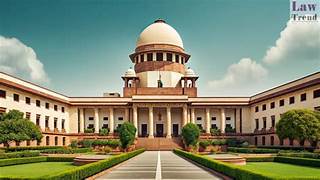Ruling Temporarily Halts Key Provisions Amid Calls for Transparent Implementation Under PM Modi’s Leadership
Published on: September 15, 2025
By: BTNI
Location: New Delhi, India
In a pivotal decision that balances constitutional safeguards with legislative intent, the Supreme Court of India today refused to stay the entire Waqf (Amendment) Act, 2025, while temporarily suspending several contentious provisions. The bench, led by Chief Justice B.R. Gavai, emphasized the presumption of constitutionality for laws passed by Parliament, observing that a complete stay would only be warranted in the “rarest of rare” cases. This nuanced judgment comes amid widespread scrutiny of the Act, which seeks to enhance transparency and efficiency in managing waqf properties across the country.
The Act, introduced in the Lok Sabha on August 8, 2024, and receiving presidential assent on April 5, 2025, amends the Waqf Act of 1995 to repeal the outdated Mussalman Wakf Act of 1923. It renames the framework as the United Waqf Management, Empowerment, Efficiency, and Development Act, aiming to curb encroachments and streamline administration. Key changes include empowering district collectors to survey waqf properties, mandating the inclusion of non-Muslim members in waqf boards and councils, and discontinuing the “waqf by user” category for future declarations. The legislation also bars Muslims from Scheduled Castes and Tribes from creating waqfs, a provision defended by the government as a protective measure.
However, the apex court has put on hold provisions granting collectors unilateral authority to determine if a waqf-declared property belongs to the government, preventing potential “creeping acquisitions” as alleged by over 100 petitioners, including the All India Muslim Personal Law Board and MPs like Asaduddin Owaisi. The ruling clarifies that waqf bodies must remain predominantly Muslim in composition, allowing up to three or four non-Muslim members while recommending that chief executive officers “preferably” be Muslims. Crucially, properties already declared as waqf—whether registered, unregistered, or by user—cannot be denotified or altered until further hearings.
The verdict has elicited mixed reactions. Organizations like the All India Pasmanda Muslim Mahaz hailed it as a “balanced approach” safeguarding constitutional values and waqf sanctity, while the Indian Union Muslim League called the suspension of representation-limiting clauses a “significant relief.” Protests earlier in the year, including those by the AIMIM, underscored concerns over the Act’s perceived discriminatory elements, such as the five-year practicing Muslim requirement for waqf creation.
.Also read- https://www.btnewsindia.com/cm-vishnu-deo-sai-launches-azim-premji-scholarship-scheme-to-empower-girl-students/ https://www.btnewsindia.com/maharashtra-sp-chief-abu-azmi-voices-disappointment-over-supreme-courts-waqf-amendment-act-order/
In response, the Bharatiya Janata Party (BJP) reiterated its unwavering commitment to judicial supremacy. Party spokesperson Sambit Patra stated, “The Supreme Court’s decision on the Waqf Board is before all of us. With the nation’s trust, our visionary Prime Minister Narendra Modi has repeatedly demonstrated his ability to implement court verdicts effectively.” He added, “This is our party’s policy: we will honor and uphold whatever the judiciary decides.” This stance aligns with the BJP’s history of swift execution of landmark rulings, from the Ayodhya verdict to the abrogation of Article 370, reinforcing public confidence in the government’s resolve.
As petitions challenging the Act’s validity continue, today’s pronouncement sets the stage for deeper deliberations on secularism, property rights, and religious autonomy. With no new appointments to waqf councils or boards until May 5, 2026, and the UMEED portal registration ongoing, the focus shifts to ensuring equitable governance. Stakeholders anticipate that this ruling will foster greater accountability in waqf management, benefiting millions while preserving India’s pluralistic ethos.




